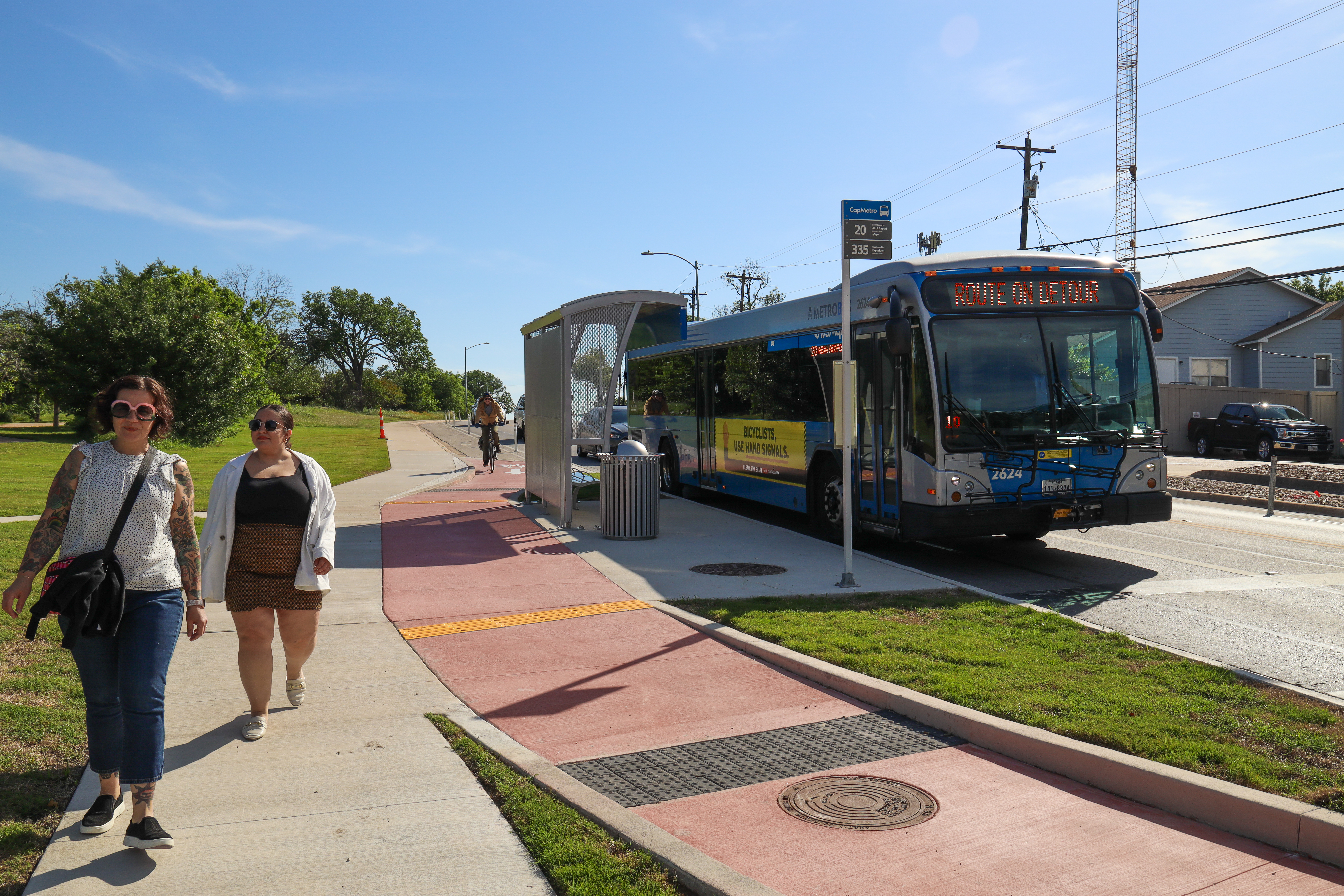
City of Austin
FOR IMMEDIATE RELEASERelease Date: Jul. 22, 2024
Contact: Jack Flagler (512) 974-8000 Email

The Environmental Protection Agency will award a $47.9 million grant to a coalition of Austin-area transportation organizations.
AUSTIN, Texas – The Environmental Protection Agency announced today it is awarding a $47.9 million grant to a coalition of Austin-area transportation organizations. The Climate Pollution Reduction Grant (CPRG) will help commuters in the region adjust to upcoming major construction projects that will temporarily disrupt travel in and around Austin and benefit from alternate commute options.
The grant is awarded to the City of Austin, which will lead implementation as Central Texas prepares to see more than $20 billion in mobility infrastructure investment over the next decade. This confluence of projects includes projects led by Texas Department of Transportation (TxDOT), Central Texas Regional Mobility Authority (CTRMA), Travis County, the City of Austin and CapMetro. Partners in this grant-funded effort to help manage how the community navigates those projects include TxDOT, Capital Area Council of Governments (CAPCOG), CapMetro, Capital Area Rural Transportation Service (CARTS) and Movability.
As TxDOT begins its I-35 Capital Express Central project and Austin implements Project Connect (light rail and other connectivity improvements), construction will cause major traffic impacts over the next decade, which risks increasing vehicle miles traveled and air pollution by single-occupant vehicles (SOVs).
The coalition will use the federal funds in a three-pronged effort to reduce these risks:
- Improving regional transit service: CARTS will be expanded, offering more frequent service on its interurban coach and additional vanpool services to suburban communities such as San Marcos, Bastrop and Taylor; CapMetro will increase frequency in north/south routes adjacent to construction; and small-scale shuttles/circulators will operate in construction areas.
- Investing in mobility infrastructure: New or improved "mobility hubs" will be created at key regional and local mobility transition points, making carpooling, biking, transit and other non-SOV transportation choices more viable. The stations will include expanded access to CapMetro Bikeshare and other micromobility options, large scale secure bicycle storage, parking availability information, bike and pedestrian counters and air quality monitors for data collection.
- Inspiring behavior change: The grant will allow a large-scale program of incentives and engagement to encourage people to stop driving alone. In addition, the program can provide financial incentives aiding low-income transit users and limited payments encouraging new users; grassroots, community-based programming to develop personalized travel planning for hard-to-reach communities; implementation of a coordinated regional mobility website, including live customer service and text/chat support; and regional, multilingual marketing and communications outreach.
"The Austin region is on the brink of an exciting and positive new era of mobility with the infusion of billions of dollars into transportation projects," Austin Mayor Kirk Watson said. "But transformational change will bring some disruption along the way. Working with our regional coalition of transportation agencies, we plan to use this grant to make our transition a little easier and more pleasant for our residents with timely traveler information while also promoting adoption of transit, carpooling, and active transportation, leading to long-lasting impacts on congestion and achieving our mobility and pollution reduction goals."
"This grant will help promote and provide cleaner ways for people to get around the Austin region," Austin City Manager TC Broadnax said. "Our residents and visitors will be able to make informed choices about how they want to travel. That aligns with the City’s goal to improve the quality of life for people who live and work here."
"TxDOT's Austin District is implementing technology tools to promote early and effective construction coordination between the agencies building these large projects, while also ensuring that residents, businesses and travelers receive the information they need to plan their trips," said Tucker Ferguson, P.E., TxDOT Austin District Engineer. "Through our partnership with the City of Austin and other regional transportation agencies, our goals are to enhance safety, improve regional mobility and keep Central Texas moving through peak construction and beyond."
Learn more about the City of Austin’s CPRG program initiatives at the City’s website.
###
